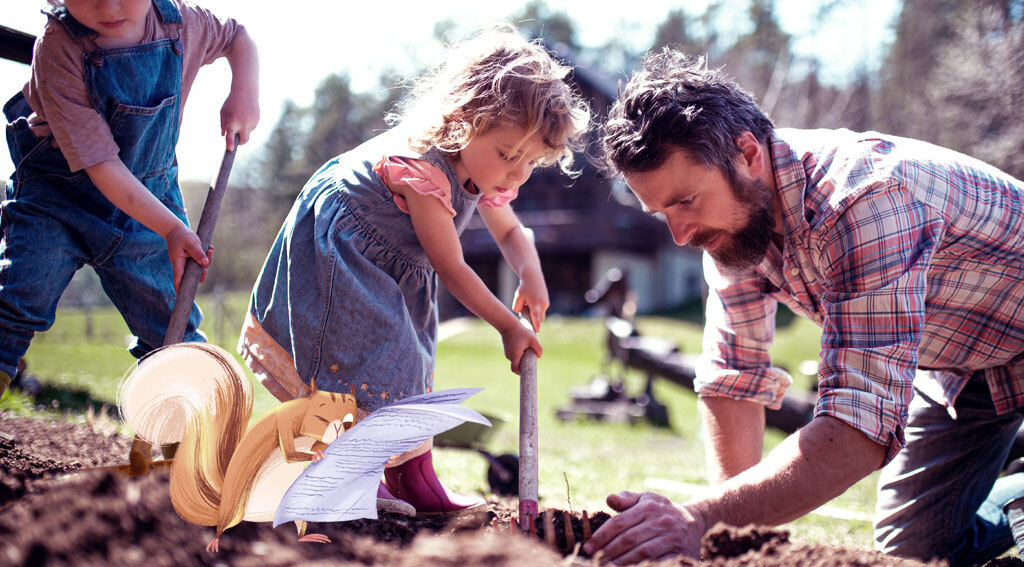
Empowering Your Child: A Modern Parent’s Guide to Cultivating Self-Confidence in Kids
Every parent wants their children to grow up feeling confident in themselves and their abilities.
A child’s self-confidence can have a significant impact on their future success, relationships, and overall well-being. Fortunately, there are many ways that we can help our kids build their self-confidence in a pedagogical and mindful way.
Building a Strong Foundation for Self-Confidence
The first step in raising a self-confident kid is to build a strong foundation for their self-esteem. Positive reinforcement and encouragement are essential for building self-confidence. When our kids achieve something, we should celebrate their achievements and progress. For example, we can high five our kids straight after a race or when we see they’ve built a complicated Lego structure, we can say, “This is the result of real hard work. I am impressed with how you worked on all those details.” We can also encourage positive self-talk by reminding our children of their strengths and accomplishments. Saying “You have a good eye for color. I loved the way you decorated your room” or “It was very thoughtful of you to invite the new boy in your class to your birthday party” can help to construct a strong foundation for our kids’ self-confidence.
Mindful parenting techniques can also be beneficial for boosting self-esteem. Practicing mindfulness can help us be more present and attentive to our kids’ needs. By listening actively, validating their feelings, and providing positive feedback, we can create a supportive and nurturing environment that fosters self-confidence.
Developing Skills for Self-Confidence
In addition to building a strong foundation for self-confidence, it’s essential to help our kids develop skills that contribute to their self-confidence. Encouraging exploration and curiosity can help our children learn about themselves and their interests, while creative expression can help them build self-expression skills. We can encourage exploration and curiosity by asking open-ended questions which lead to no particular answer. In this way, they learn to tackle ideas creatively rather than seeking the right answer. For example, when our kid wants us to read the same story for bedtime reading, to spice up the routine, we can leave the conclusion of the story to our kid’s imagination or ask for an alternative title or a different introduction. Other activities to encourage exploration and curiosity such as making a change in their routine or taking them to new places can make them gain interest and instill confidence in our kids.
Developing resilience and coping strategies is also essential for building self-confidence. When our kids face challenges or setbacks, we should encourage them to bounce back and develop strategies for coping with stress and adversity. Mindful parenting techniques like modeling positive self-talk and emotional regulation can help our kids build resilience and learn healthy coping mechanisms. We can encourage our kids to engage in yoga or meditation which promote relaxation and stress relief or to brainstorm solutions to their problems. We should also model healthy coping strategies ourselves such as taking breaks or practicing breathing exercises to promote positive coping strategies which will help our kids build self-confidence.
Encouraging Healthy Social Relationships
Healthy social relationships are also vital for building self-confidence. Developing empathy and emotional intelligence can help our children understand and connect with others, while nurturing healthy friendships can help them build a positive social support network. Encouraging social skills, like communication, cooperation, and conflict resolution, can also contribute to our children’s self-confidence. Mindful parenting techniques like teaching our kids to listen actively, validate others’ feelings, and express empathy can help them build healthy social relationships.
Every kid socializes differently; we should give them chances to learn in social scenes that they are comfortable in. For example, we can ask our kids to tell stories in front of groups of relatives and friends; get our kids to use body language while communicating; force a negotiation with them when considering buying a toy and make them argue their point across. We can also practice role playing with our kids as a way to improve their social skills that are important for healthy relationships.
Encouraging Independence and Responsibility
Encouraging independence and responsibility is also essential for building self-confidence. By providing opportunities for our kids to make decisions, take risks, and problem-solve, we can help them build self-reliance and self-efficacy. Encouraging personal responsibility, like completing chores and following through on commitments, can also contribute to our children’s sense of self-worth.
Mindful parenting techniques like giving our kids choices and allowing them to make mistakes can help them learn and grow. By reframing mistakes as learning opportunities and providing constructive feedback, we can help our kids develop a growth mindset and build their self-confidence.
Developing a Growth Mindset
Finally, fostering a growth mindset can also contribute to our children’s self-confidence. By encouraging a positive attitude towards learning, teaching our kids to embrace challenges, and focusing on the process rather than the outcome, we can help them develop a growth mindset. This mindset can help our kids view failures and setbacks as opportunities for growth and development. For example, using the trial and error method can encourage a positive attitude towards learning. Whether they are stuck in a real-life problem or in a game, we should let our kids experiment and fail as they learn. We should be patient and let them find their own solution rather than conveying our thoughts to them. We can provide help, but the answer should not be offered straightaway. This will help our kids to gain a growth mindset.
Mindful parenting techniques like modeling a growth mindset, encouraging effort over ability, and providing opportunities for self-reflection can help our kids develop this mindset.
Raising a self-confident kid requires a holistic approach that focuses on building a strong foundation for self-confidence, developing skills for self-confidence, encouraging healthy social relationships, promoting independence and responsibility, and fostering a growth mindset. By practicing mindful parenting techniques like active listening, you can nurture self-confidence in your child.

